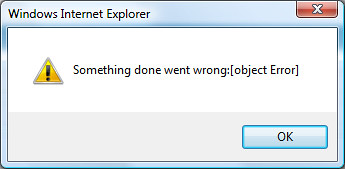 Negotiators rely on experience and “gut” feelings when carrying out their work, as many people do in their day-to-day interactions. But relying on our intuition can allow hidden biases to influence our decision-making, leading to flawed outcomes based on misjudgments.
Negotiators rely on experience and “gut” feelings when carrying out their work, as many people do in their day-to-day interactions. But relying on our intuition can allow hidden biases to influence our decision-making, leading to flawed outcomes based on misjudgments.
Researchers Keith Stanovich and Richard F. West have outlined two types of thinking: System 1 thinking, which is based on intuition, and System 2 thinking, which is based on logic.
System 1 thought is characterized by fast, automatic decisions that can be influenced by our emotions. When we’re rushing, juggling a lot of information at one time or multi-tasking, we tend to fall back on System 1 thought. We also rely on System 1 thought when we experience “cognitive overload,” something that happens frequently in multilateral negotiations due to the complexity of the task.
System 2 thought is slower and more logical, requiring conscious effort to weigh options.
We can’t, of course, always engage in methodical System 2 thought because we don’t have time. And, many decisions don’t require this level of brainpower. Complex negotiations, however, often do. Max Bazerman and Deepak Malhotra, both from Harvard Business School, recommend four strategies to keep our intuition-based decision-making in balance with System 2 thought. First, they recommend making a “System 2 list” about once a month, identifying the most important meetings or negotiations that require intense thought. “Such negotiations might concern lots of money, complex issues, multiple parties, key strategic partners” etc.
The second strategy they recommend is to keep time limits to a minimum. When negotiating gets down to the wire, System 1 thinking tends to take over – potentially foiling solid work that was accomplished earlier. Building some extra time into the agenda might help minimize the negative consequences of time constraints.
Bazerman and Malhotra’s third suggestion is to design negotiations to ensure participants have the opportunity to “rethink or restrategize” at regular intervals during the proceedings. This creates space to deal with unexpected information and to organize well-reasoned responses.
It also helps to distribute materials that may generate comments well in advance of a meeting, allowing participants to collect their thoughts without time pressure. Finally, they suggest adopting an “outsider” lens when considering the issues to be negotiated: an objective view is critical to overcoming biases like the overconfidence bias that leads some to greatly overestimate their chances of success in a negotiation.
Although adapting these suggestions to multilateral negotiations will present new procedural issues for those involved – like increased cost to governments because of an extended meeting, for example – creative ways to implement these suggestions may emerge if we give them some careful, objective and long-term thought – System 2 thought, in other words.
Ashley Thornton
References
Posting based on a short article by Max Bazerman & Deepak Malhotra called “When Not to Trust Your Gut” published 31 July 2006 in Working Knowledge.
Photo from flickr.com at: http://www.flickr.com/photos/shutterscript/439085317/.
Monday, 11 June 2007
When intuition isn’t enough
Posted by Disarmament Insight at 09:30
Labels: biases, decision-making, Deepak Malhotra, intuitions, Max Bazerman, negotiations, Thornton





0 comments:
Post a Comment